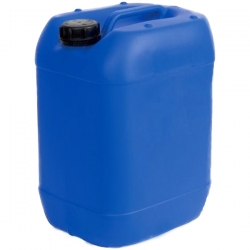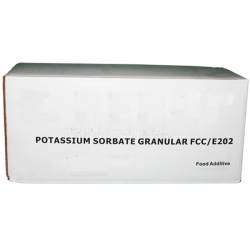No products in the cart.
Active filters
E330 - Citric Acid
Citric Acid is a tricarboxylic acid found in citrus fruits. Citric acid is used as an excipient in pharmaceutical preparations due to its antioxidant properties. It maintains stability of active ingredients and is used as a preservative. It is also used as an acidulant to control pH and acts as an anticoagulant by chelating calcium in blood.
E296 - MALIC ACID
Malic acid is an organic compound with the molecular formula C4H6O5. It contributes to the pleasantly sour taste of fruits and is used as a food additive. Malic acid has two stereoisomeric forms (L- and D-enantiomers), although only the L-isomer exists naturally. Malic acid is highly hygroscopic, soluble in water and ethanol. It has a special pleasant acidity.
E270-LACTIC ACID
Lactic acid is utilized in the food industry as an additive (E270) serving as an antioxidant, acidifier, or flavor enhancer. It also exists in the form of salts: sodium salt (E325), potassium salt (E326), and calcium salt (E327). These salts are in powder form and are water-soluble. Lactic acid acts as a bacteriostatic agent, particularly against pathogenic bacteria such as Salmonella or Listeria, and also has a water activity-depressing effect.
Lactic acid is an organic compound, naturally forming in muscles during intense exercise to produce energy. It is also present in wine, dairy products, and certain vegetables after fermentation.
FUMARIC ACID
Fumaric acid, or trans-butenedioic acid, is an unsaturated dicarboxylic acid with the chemical formula HOOC–CH=CH–COOH. It appears as a crystalline white powder that is odorless, combustible but weakly flammable, and slightly soluble in water.
E202-POTASSIUM SORBATE
Potassium sorbate (E202) is a potassium salt of sorbic acid. It is commonly used as a food preservative to inhibit the growth of molds and yeasts, thereby helping to extend the shelf life of foods.
E211-SODIUM BENZOATE
Sodium benzoate (E211) is a widely used food preservative in the food industry to extend the shelf life of products.
E200-SORBIC ACID
Sorbic acid is an additive used as an antifungal agent and as a preservative (E200) for fruits and vegetables. Therefore, it can be found in various food products based on fruits and vegetables (yogurts, cider, etc.) as well as in light mayonnaises and margarines.
SODIUM ASCORBATE
Sodium ascorbate is a potent antioxidant; it is widely used in the food industry for food preservation.
PROPIONIC ACID
Propionic Acid, is a food preservative widely used for its antifungal and antibacterial properties. It is commonly added to various food products to extend their shelf life and prevent the growth of undesirable molds and bacteria.
SODIUM PROPIONATE
Sodium propionate (E281) is a sodium salt of propionic acid, a carboxylic acid. It is used as a food additive in the food industry, primarily as a preservative agent to inhibit the growth of molds and yeasts, thereby extending the shelf life of food products.
E282-CALCIUM PROPIONATE
Calcium propionate (E282) is a calcium salt of propionic acid. It is used as a food additive in the food industry for its antifungal and antibacterial properties, thereby helping to extend the shelf life of food products.
E331-SODIUM CITRATE
Sodium citrate is the sodium salt of citric acid (E330), a natural acid found in most fruits. On an industrial scale, it is produced by cultivating a fungus (Aspergillus niger) in a sugary nutrient solution.
E262 - ACETIC ACID
Acetic acid, also known as ethanoic acid, is a chemical compound belonging to the carboxylic acid family. It is widely utilized in various applications, including the food industry, vinegar production, and the chemical and pharmaceutical industries.
CALCIUM LACTATE
Calcium Lactate is the calcium salt of lactic acid (E270). Of natural origin, it serves as an antioxidant. Additionally, it functions as an acidity regulator, humectant, emulsifier, thickener, and firming agent. Its use is permitted in numerous food products.
N-BUTYRIC ACID
N-Butyric acid is a straight-chain saturated carboxylic acid represented by the chemical formula C4H8O2. It plays a crucial role in several areas, including as a biochemical compound, food additive, and nutritional supplement.
E332 - POTASSIUM CITRATE
Potassium citrate is the potassium salt of citric acid (E330). It is a natural acid present in most fruits.

































































